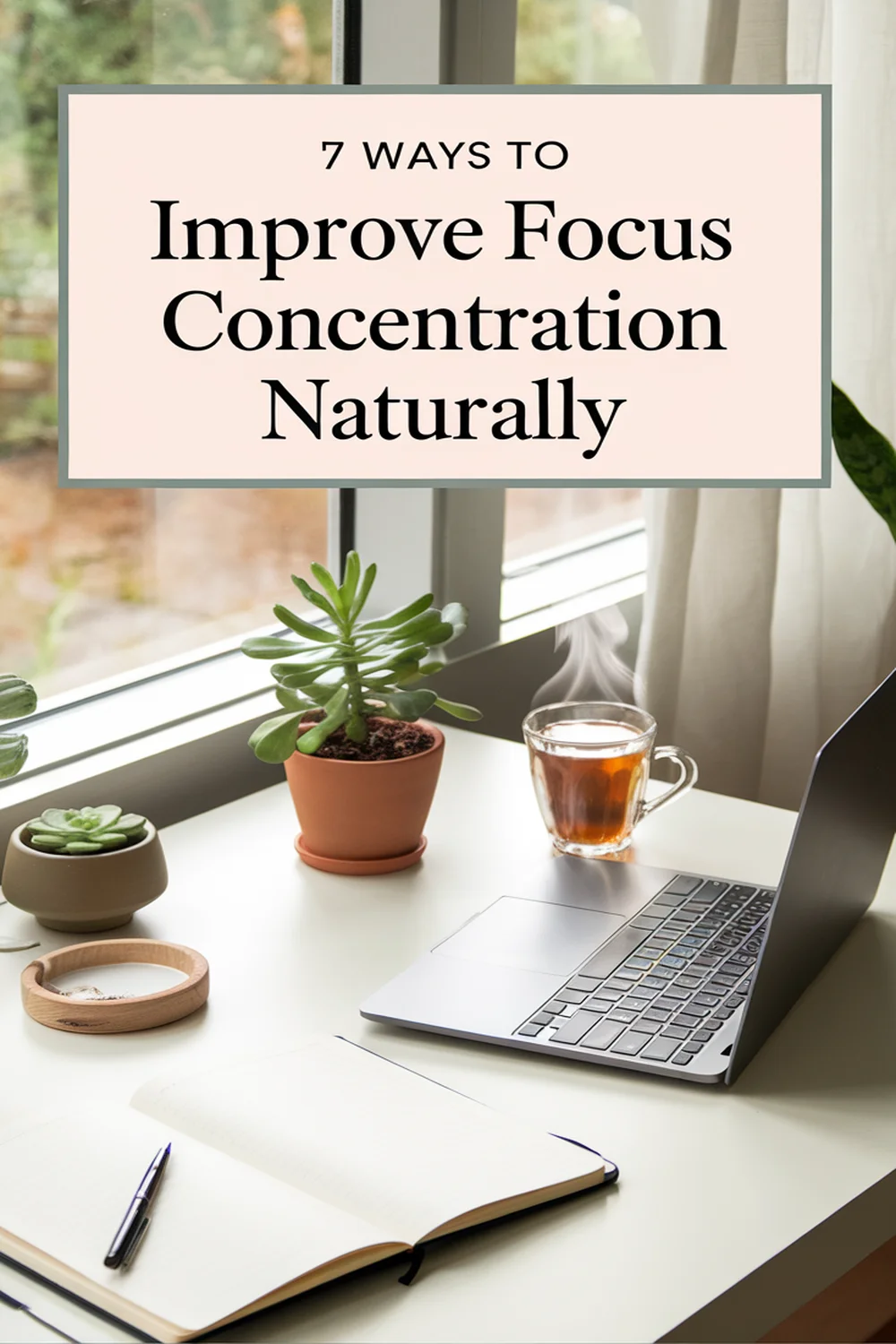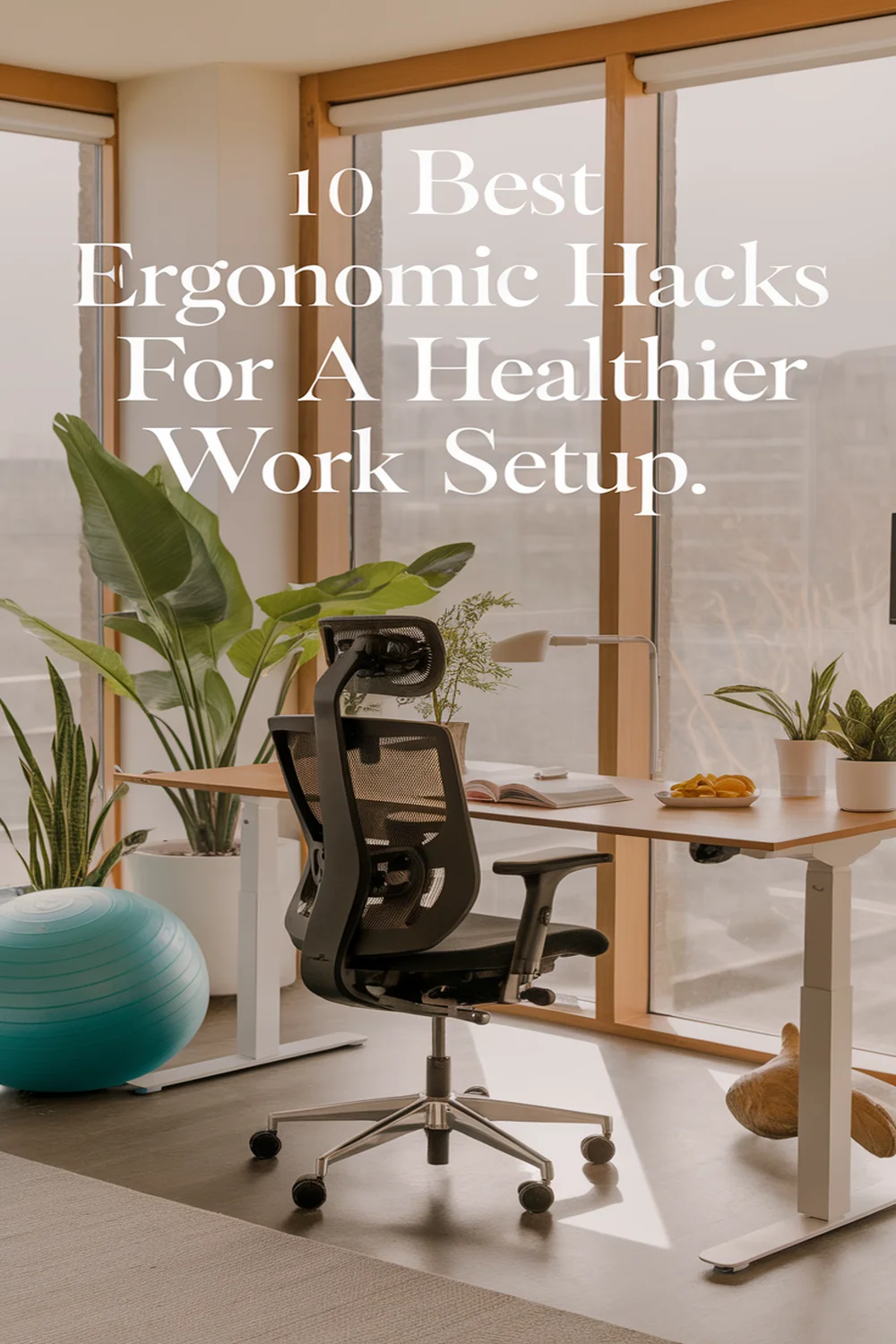To manage stress at work, prioritize your tasks by urgency and importance. Take regular breaks to recharge and practice deep breathing to center yourself. An organized workspace can reduce distractions and increase productivity. Set realistic goals to keep your workload manageable and seek support from colleagues when you feel overwhelmed. Establish boundaries by defining your work hours and embracing flexibility as needed. Reflect and adjust your strategies regularly to stay in control. You can discover even more effective techniques ahead.
Prioritize Your Tasks
When you prioritize your tasks, it becomes easier to manage stress and stay focused. Start by listing everything you need to accomplish, then categorize those tasks based on urgency and importance. Consider using a simple system, like labeling tasks as “must-do,” “should-do,” and “could-do.” This way, you’ll know exactly what deserves your immediate attention. Don’t hesitate to delegate when possible. Remember, it’s okay to say no to additional tasks if your plate is already full. By tackling high-priority items first, you can gain a sense of accomplishment, which boosts your motivation. Regularly reassess your priorities as deadlines approach or circumstances change. This flexibility will help you adapt and stay on top of your responsibilities, reducing overall stress.
Take Regular Breaks
Taking regular breaks is essential for maintaining your productivity and managing stress at work. Stepping away from your tasks, even briefly, can rejuvenate your mind and enhance focus. It’s not just about resting; it’s about coming back with clearer insights and renewed energy. Here’s how different types of breaks can help you:
| Type of Break | Benefits |
|---|---|
| Short Walk | Boosts circulation and mood |
| Stretching | Relieves tension in muscles |
| Light Snack | Energizes and refuels your brain |
| Mindfulness Meditation | Reduces anxiety and enhances clarity |
| Quick Chat with a Colleague | Fosters connection and support |
Incorporate these breaks into your routine, and you’ll find it’s easier to tackle your workload. Prioritize your mental well-being!
Practice Deep Breathing
Deep breathing serves as a powerful tool to combat stress and improve focus at work. When you feel overwhelmed, take a moment to pause and inhale deeply through your nose, letting your abdomen expand. Hold the breath for a few seconds, then exhale slowly through your mouth. This simple practice not only calms your mind but also increases oxygen flow to your brain, enhancing clarity. You can repeat this process several times, even in short bursts throughout your day. Remember, you don’t need to wait for a stressful moment to engage in deep breathing; incorporating it into your daily routine can create a more balanced mindset. By making this small change, you’ll find yourself feeling more centered and ready to tackle challenges.
Organize Your Workspace
While a cluttered workspace can easily lead to distractions and increased stress, organizing your environment can greatly boost your productivity and mental well-being. Start by decluttering your desk, keeping only essential items within reach. Use organizers or trays for documents and supplies, so everything has a designated place.
Here’s a simple table to help you focus on key organization tips:
| Action | Purpose | Benefit |
|---|---|---|
| Clear clutter | Reduce distractions | Improved focus |
| Use labels | Identify items easily | Saves time |
| Create zones | Group similar tasks | Enhanced productivity |
Set Realistic Goals
Setting realistic goals is essential for managing stress at work and maintaining your motivation. When you set achievable objectives, you create a clearer path to success, making it easier to focus and stay positive. Here are some practical tips to help you establish those goals:
- Break it down – Divide larger tasks into smaller, manageable steps.
- Prioritize – Determine which tasks are most important, and tackle those first.
- Be specific – Set clear and defined goals to avoid ambiguity.
- Set deadlines – Create timeframes for each goal to keep yourself accountable.
Use Time Management Techniques
Effective time management techniques can transform your workday by helping you prioritize tasks and reduce stress. Start by breaking down your tasks into manageable chunks, using lists or digital tools. Try the Eisenhower Matrix to distinguish between urgent and important tasks, so you focus on what truly matters.
Here’s a simple table to guide you:
| Task | Urgency Level | Importance Level |
|---|---|---|
| Respond to emails | High | Low |
| Prepare project plan | Low | High |
| Attend team meeting | Medium | Medium |
| File reports | Low | Low |
Foster Positive Relationships
Building positive relationships at work can considerably reduce stress and enhance your overall job satisfaction. When you have supportive colleagues, it creates a more enjoyable work environment. To foster these relationships, try these practical tips:
- Communicate openly – Share your thoughts and listen to others.
- Show appreciation – A simple ‘thank you’ can brighten someone’s day and strengthen bonds.
- Collaborate on projects – Working together can build trust and promote teamwork.
- Make time for social interactions – Join team lunches or coffee breaks to connect on a personal level.
Incorporate Physical Activity
A supportive workplace not only boosts morale but also opens the door to healthier habits, like incorporating physical activity into your daily routine. Taking short breaks to stretch or walk around can do wonders for your mental clarity and energy levels. Instead of staying glued to your chair during lunch, consider a brisk walk or joining colleagues for a quick workout. Even simple desk exercises can help relieve tension and improve your mood. If you can, swap your chair for a stability ball or standing desk to keep your body engaged. You’ll find that just a little movement throughout the day can greatly decrease stress and enhance productivity. Prioritizing physical activity isn’t just about fitness; it’s essential for your overall well-being.
Recommended Items
Discover our top picks for health and wellness essentials to help you manage stress at work—explore and enjoy!
Stay Hydrated
While it might seem simple, staying hydrated throughout your workday is essential for managing stress and maintaining focus. Dehydration can lead to fatigue and irritability, making it harder to tackle your tasks. Here are some practical tips to help you drink enough water during the day:
- Keep a Water Bottle: Have a reusable water bottle at your desk to remind you to sip regularly.
- Set Goals: Aim to drink at least 8 cups of water daily; consider tracking your intake.
- Infuse for Flavor: Add fruits like lemon or berries to your water for a revitalizing twist.
- Take Breaks: Use hydration as a cue to step away from your desk and recharge your mind.
Staying hydrated’s a simple way to boost your well-being!
Limit Caffeine Intake
To maintain your energy levels and manage stress effectively, it’s important to limit your caffeine intake. While a little caffeine can help boost productivity, too much can lead to anxiety, jitteriness, and even insomnia—exacerbating your stress. Start by being mindful of your consumption, noting how it affects your mood and sleep patterns. Consider switching to herbal teas or decaf options later in the day.
| Time of Day | Caffeine Sources | Alternatives |
|---|---|---|
| Morning | Coffee, Energy drinks | Herbal tea, Decaf coffee |
| Afternoon | Soda, Iced coffee | Water, Fruit-infused water |
| Evening | Late espresso | Chamomile tea |
| Before Bed | Any high-caffeine drink | Warm milk, Relaxing tea |
Evaluate and adjust to maintain balance.
Action Steps for Managing Work Stress
Practice Mindfulness
Practicing mindfulness can greatly enhance your ability to manage stress at work, especially when deadlines loom and demands increase. Mindfulness helps you stay present, reducing anxiety about future tasks. Here are some simple ways to incorporate it into your daily routine:
- Focus on your breath: Take a few moments to breathe deeply, inhaling through your nose and exhaling through your mouth. This clears your mind and grounds you.
- Practice gratitude: Each morning, jot down three things you’re thankful for to shift your focus towards positivity.
- Take mindful breaks: Step away from your desk to stretch or take a walk, allowing your mind to reset.
- Engage your senses: Notice the sights, sounds, and smells around you to reconnect with your environment.
Seek Support When Needed
Seeking support when you’re feeling overwhelmed is essential for maintaining your well-being at work. Don’t hesitate to reach out to colleagues or supervisors. Sharing your feelings can provide relief and remind you that you’re not alone. You can also connect with a mentor or a trusted friend who can offer perspective and guidance. Consider utilizing employee assistance programs, which often provide counseling and resources tailored to your needs. Remember, asking for help isn’t a sign of weakness; it’s a proactive step toward managing stress effectively. By fostering a support network, you empower yourself to cope better and navigate challenges with a clearer mind. So, take that step, and prioritize your mental health in the workplace.
Establish Boundaries
Establishing boundaries is essential for preserving your mental health and maintaining a healthy work-life balance. Without clear limits, work can easily spill into your personal life, causing stress and burnout. Here are some practical tips to help you set effective boundaries:
- Define your work hours: Stick to a schedule so colleagues know when you’re available.
- Create a dedicated workspace: If possible, separate your workspace from your personal space to mentally switch off after work.
- Learn to say no: Prioritize your workload and don’t take on more than you can handle.
- Limit after-hours communication: Resist the urge to check work emails or messages outside your designated hours.
Embrace Flexibility
While it’s important to set boundaries, embracing flexibility in your work-life can greatly alleviate stress and boost productivity. Recognize that unexpected situations may arise, and adapting to them can ease tension. For instance, consider shifting your work hours to fit your peak productivity times or incorporating short breaks to recharge. Being open to changing your approach can foster a healthier balance. Additionally, communicate with your team about your needs and be willing to collaborate on solutions. Remember, flexibility doesn’t mean chaos; it’s about finding ways to meet your commitments while allowing room for personal needs. By being adaptable, you’ll not only manage stress better but also create a more supportive work environment for yourself and others.
Reflect and Adjust Regularly
Regularly reflecting on your work habits and stress levels is essential for maintaining a healthy balance in your professional life. By taking the time to assess where you stand, you can identify areas for improvement and make necessary adjustments. Here are some practical steps to incorporate reflection into your routine:
- Schedule Weekly Check-Ins: Set aside time to review your stress triggers and how you’ve managed them.
- Keep a Stress Journal: Track your feelings and reactions to various situations, helping you pinpoint patterns.
- Seek Feedback: Ask colleagues for input on your work habits and stress management.
- Adjust Your Goals: Reevaluate your priorities regularly to make sure they align with your well-being.
Being proactive can greatly enhance your productivity and overall happiness at work.











